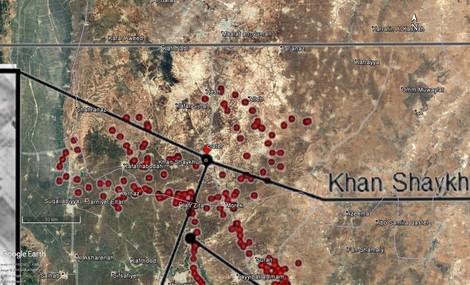Your podcast discovery platform
Curious minds select the most fascinating podcasts from around the world. Discover hand-piqd audio recommendations on your favorite topics.

piqer for: Globalization and politics Global finds
I am an Australian freelance journalist focussing on conflicts, politics, and warzones around the world. I have been working as a journalist for over 5 years, having reported from Australia, Germany, China, Egypt, Palestine, and Ukraine. I am especially interested in the way that new technologies are being used in conflict zones in unexpected and often disturbing ways. During my time working as a journalist, I also co-founded open-source war reporting site Conflict News.
The Khan Sheikhoun Chemical Attack — Who Bombed What and When?
The Syrian Civil War has been ongoing for more than six years. Over 500,000 people have been killed and millions have been displaced.
Among all the carnage of war, many observers believed the end of the conflict was in sight. Rebel forces, now made of mainly Islamist factions, had lost significant territory, including their former holdings in the largest city in the country, Aleppo. Just as importantly, representatives of the Trump administration in the US appeared to have changed their position on Syria's authoritarian leader Bashar Al-Assad, who they labeled as a "political reality".
But the events of April 4 changed all that.
At around 8:30 am local time, a chemical weapon, likely containing the nerve agent sarin, was used against the town of Khan Sheikhoun in Idlib province. At least 80 died, with high definition footage of their twitching bodies going viral around the world.
The attack was blamed on the Assad regime, and within 72 hours, the US launched a retaliatory strike, involving 59 Tomahawk missiles, against an airbase in Syria. While the damage caused by this strike was questionable, as was its lasting impact, it nonetheless represented a complete turnaround of US policy regarding Syria. All bets over how the conflict would end were once again off.
Given the massive impact of this chemical attack, it is worth analyzing the proof for who was responsible. In his article for analysis website Bellingcat, Christiaan Triebert presents a compelling investigation in an attempt to answer this very question. Using open source information collected from social media, satellite imagery and government releases, he concludes that it is highly likely that the Assad regime was indeed responsible for this terrible attack.

Very valuable addition to reporting from traditional sources. Thanks.
important piq, thanks!